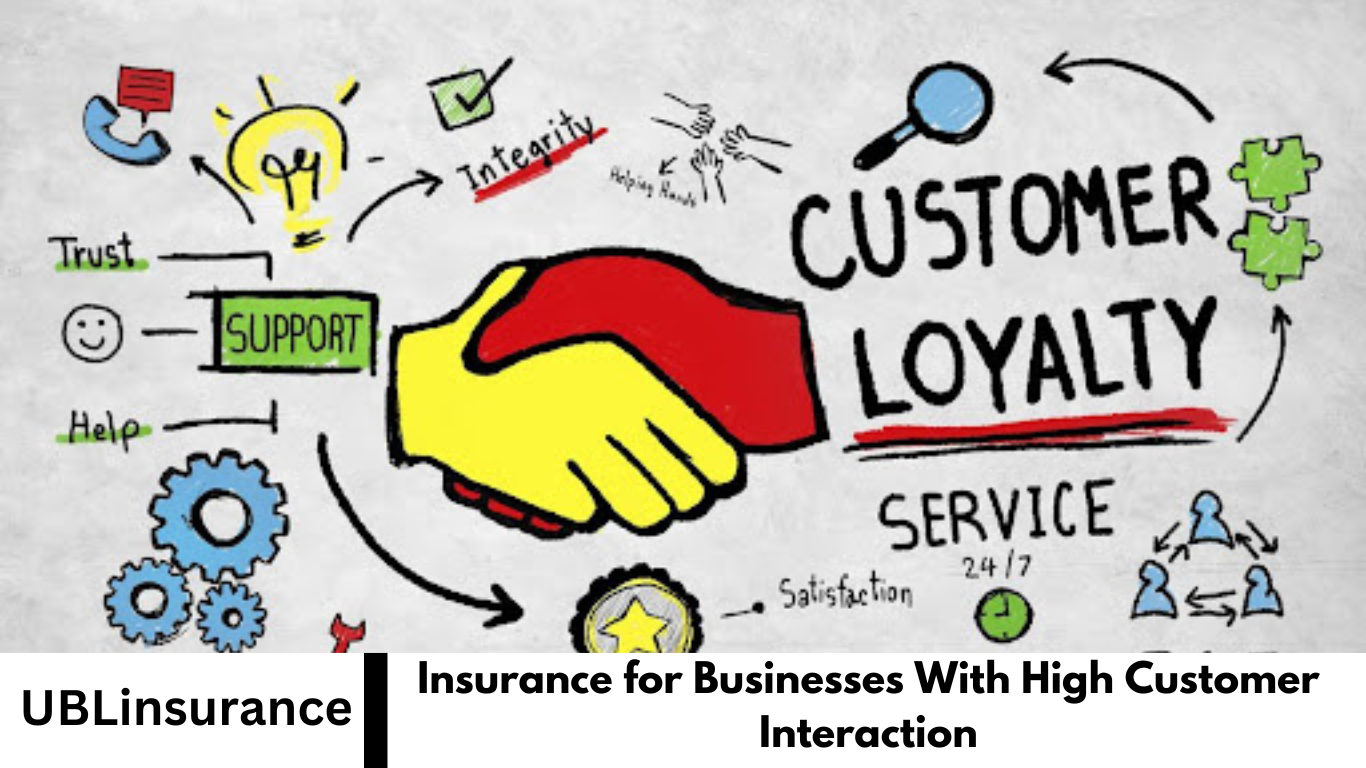Businesses that interact heavily with customers—such as restaurants, retail stores, salons, gyms, and healthcare practices—face unique risks every day. From slip-and-fall accidents to service disputes or data breaches, the more face-to-face or service-based the interaction, the higher the potential liability. That’s why specialized insurance coverage is essential for protecting your business, employees, and customers. At a minimum, these businesses should carry general liability insurance, which covers third-party injuries and property damage.
Choosing the right mix of policies depends on your industry, customer volume, and type of services offered. As interactions increase, so does the potential for misunderstandings, accidents, or legal claims. Insurance helps cover legal costs, settlements, and damage repair—so your business can focus on growth instead of risk. In this guide, we break down the key insurance needs for high-interaction companies and answer the most common questions to help you build a strong risk management plan.
Why Customer-Facing Businesses Need Specialized Insurance

Businesses that interact directly with customers—like restaurants, retail stores, salons, clinics, and service providers—are exposed to unique risks. Every in-person interaction creates potential for liability, property damage, or personal injury claims. That’s why high-touch businesses must carry tailored insurance coverage that addresses both physical and reputational risks. In 2025, consumers expect safety, and companies must be financially prepared if something goes wrong.
General Liability Insurance: A Foundational Must-Have
General liability insurance is the first line of defense for any business that interacts regularly with customers. It covers claims related to:
- Slip-and-fall accidents
- Property damage caused by your business operations
- Legal fees and settlements from lawsuits
- This policy is essential for businesses with physical locations that customers visit frequently, like cafés, spas, gyms, and stores. Without it, even a minor accident could result in expensive legal battles.
Professional Liability (Errors & Omissions) for Service-Based Interaction
If your business provides services or advice—like consulting, beauty treatments, coaching, or therapy—you need professional liability insurance. Also known as Errors & Omissions (E&O) insurance, this protects you from claims of:
- Negligence
- Service errors
- Failure to deliver promised results
- It’s essential for businesses like massage clinics, aesthetic services, financial advisors, or marketing firms, where customer dissatisfaction or a perceived mistake could turn into a lawsuit.
Workers’ Compensation: Protecting Staff in Active Environments
For businesses that rely heavily on customer-facing staff—servers, sales reps, stylists, or technicians—workers’ compensation insurance is legally required in most states. It covers:
- Medical treatment for workplace injuries
- Lost wages for injured employees
- Rehabilitation services
- In high-traffic, fast-paced environments, accidents can happen. Workers’ comp not only supports your staff—it shields your business from employee-related legal claims.
Commercial Property Insurance for Physical Spaces
If you operate out of a storefront, studio, or office, commercial property insurance is vital. It protects the building and the contents inside from:

- Fire and smoke damage
- Theft or vandalism
- Water damage from burst pipes (but not flooding—flood insurance is separate)
- For customer-focused businesses, this policy ensures your doors can stay open—or reopen quickly—after a damaging event.
Cyber Liability Insurance for Digital Customer Interaction
Many customer-facing businesses now operate online or collect customer data digitally. If you take appointments through a website, store payment info, or use email marketing, you’re at risk of cyber threats. Cyber liability insurance covers:
- Data breaches
- Ransomware attacks
- Regulatory fines
- Customer notification and credit monitoring
- With cyberattacks on the rise in 2025, this coverage is becoming essential for even small brick-and-mortar businesses.
Business Interruption Insurance: Keeping You Afloat During a Crisis
When your business depends on daily customer foot traffic or appointments, even a short closure can be financially devastating. Business interruption insurance covers:
- Lost income due to temporary closure
- Ongoing expenses like rent and payroll
- Relocation costs, if needed
- Whether it’s a natural disaster, power outage, or significant repair, this coverage helps maintain your cash flow while you get back on your feet.
Customizing Coverage for Your Industry and Scale
There’s no one-size-fits-all approach to insurance. A restaurant’s needs differ from those of a yoga studio or a nail salon. Work with an insurance advisor to:

- Identify specific risks in your industry
- Choose policy limits that match your exposure
- Bundle policies for cost-effective protection
- In 2025, many insurers offer industry-specific packages that include all the core coverages you need—streamlining protection while often offering discounts.
Frequently Asked Questions
What type of insurance is essential for customer-facing businesses?
General liability insurance is crucial, covering third-party injuries and property damage.
What does general liability insurance cover?
It covers claims like slip-and-falls, property damage caused by your business, and legal defense costs.
Do I need professional liability insurance, too?
Yes, if your business provides services or advice—this covers claims of negligence or errors.
What is cyber liability insurance, and who needs it?
It covers data breaches and cyberattacks. Any business that handles customer data should consider it.
Does business insurance cover employee injuries?
Not general liability—workers’ compensation insurance is needed to cover on-the-job injuries.
Can I be held liable if a customer is injured on my property?
Yes, which is why premises liability (included in general liability insurance) is vital.
Is insurance legally required for high-customer-contact businesses?
Some coverage, such as workers’ compensation or auto liability, may be required by state law or lease agreements.
What if my business is sued for a service mistake?
Professional liability insurance would help cover legal fees and settlements.
Should I insure customer property left in my care?
Yes, Bailee’s coverage may be needed if you temporarily hold customer property (e.g., dry cleaners, repair shops).
How do I choose the right policies?
Work with a licensed insurance broker or agent who understands your industry and risk exposure.
Conclusion
For businesses with high customer interaction, the right insurance is more than just protection—it’s a strategic necessity. From physical accidents on-site to errors in services or digital threats, multiple liabilities can arise. A comprehensive insurance plan—combining general liability, professional liability, and additional coverages—helps shield your business from financial loss and reputational damage. It’s also a sign of professionalism and preparedness that builds customer trust. Don’t wait for an incident to highlight a coverage gap. Proactively assess your risks, consult an expert, and invest in policies tailored to your operations. With the right coverage in place, you can focus on delivering excellent customer service with confidence and peace of mind.




